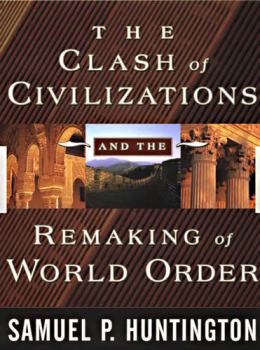
In response to Francis Fukuyama’s End of History, political scientist Samuel Huntington offered an alternate vision of the post–Cold War world, a world that, far from being united by a political ideology, would be profoundly split along “civilizational” fault lines. Conflict going forward would be dictated by clashes of culture between civilizations Huntington organized into categories such as “Japonic,” “Islamic” and “Western.” Huntington’s legions of critics argue justifiably that this worldview is, at best, simplistic and disregards the vast diversity and complexity present in all societies. But his thesis has been borne out on one level: many recent conflicts, be they started by al-Qaeda’s jihadis or Washington’s neoconservatives, have been waged in the name of a supposed struggle between civilizations.
